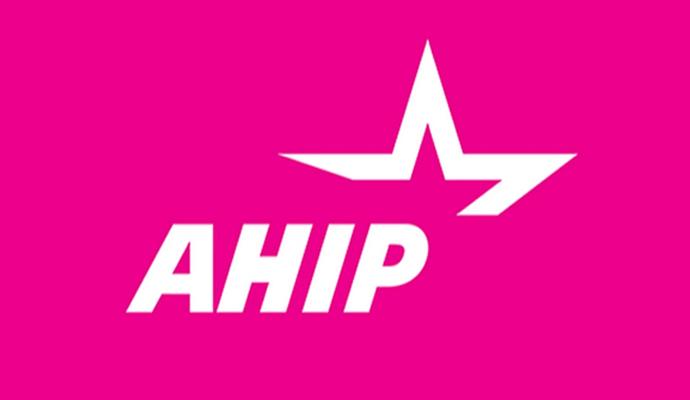AHIP Rejects Single-Payer Proposals, Upholds Current System
Current payer actions are lowering healthcare costs and improving a stabilizing system, but present single-payer proposals would lower quality of care, said AHIP.

Source: AHIP
- America’s Health Insurance Plans (AHIP) submitted a statement to the House Energy and Commerce Committee opposing current single-payer proposals in the United States.*
“Americans are facing an escalating crisis of affordability across our health care system. Cost pressures are becoming more intense for all who pay the tab for health care in the United States, whether they be consumers, employers, or governments,” the organization explained. “AHIP and our members believe that the best way to bring down costs is to improve what’s working and fix what’s not, so that everyone has affordable coverage, access to high-quality care, and control over their health care choices.”
The payer organization supported plan competition and a combination of free market and federally funded programs in order to tackle healthcare spending and raise quality of care. Its goals for the healthcare industry included lowering prescription drug spending, preventing surprise medical bills, and promoting interoperability, among other priorities.
AHIP clarified the role that payers already play in this endeavor to support comprehensive care.
First, payers recognize and support the need for preventive care. This includes looking at the health of the community as a whole, which will influence the individual’s health. Behavioral healthcare, primary care services, and substance use disorder care are all seen as an approach to pursuing both preventive care and community health.
READ MORE: Premium-Cutting CO Public Option Plan Sparks Payer Concerns
Additionally, payers are also addressing social determinants of health for members and communities. The statement called out food insecurity, housing, isolation, and employment.
Certainly, these are areas in which payers have been heavily involved in the past year. Optima Health worked to solve food insecurities in their Medicaid population in Virginia. UnitedHealthcare made a sizable contribution toward affordable housing in 80 communities, building over 4,500 homes. Alignment Health Plan and other payers established “grandkids on demand” benefits to help seniors struggling with social isolation.
“These are the kinds of solutions that should be improved and expanded for more affordable, accessible, valuable care, and better health for every American. Health insurance providers are eager to work alongside Congress and the Administration to achieve this goal,” the statement indicated.
AHIP also pointed out payers’ support for and influence over the shift toward alternative payment models. In a recent survey of 62 health plans, 95 percent strongly agreed that using advanced payment models would lead to better coordinated care and 97 percent saw it as a steppingstone to improving quality of care.
And it seems that this is not just talk. As evidence of their commitment, AHIP pointed to payers’ engagement in alternative payment models last year. A study found that 36 percent of all healthcare payments in the US that payers engaged in were alternative payment models in 2018, a 13 percentage point increase from three years ago.
READ MORE: Verma Supports Medicare Advantage, Decries Public Option
AHIP then compared these solutions to single-payer proposals circulating as a result of the presidential campaigns.
“We strongly oppose these proposals. Each of them would force government insurance systems upon Americans while making care less affordable—resulting in higher taxes on all Americans, higher total premiums and costs for the hundreds of millions of people enrolled in private coverage, longer wait times, and lower quality of care,” AHIP argued. “To put it simply, patients would pay more to wait longer for worse care.”
The single-payer proposals would force Americans off of private healthcare, rural healthcare, specifically rural hospitals, would be endangered—or else Medicare would have to raise reimbursements astronomically—and overall healthcare spending would nearly quadruple from three percent in 2023 to 11 percent in 2032, the payer organization said.
Even versions of a single-payer system that allow for competition, such as public option proposals, have suggested premium prices so low that they would choke any competitors, leaving consumers with no power of choice. Under a public option, the organization claimed, 20 percent of state exchanges would have no private payer plans by 2028.
Instead, AHIP suggested, Congress should continue to empower patients’ choice and allow them to retain their coverage.
READ MORE: Eligibility, Cost Sharing Key Factors for Single-Payer Health Insurance
“The foundation for an effective health care system already exists,” AHIP emphasized. “We should improve what we already have, rather than starting from scratch or moving in a completely different direction. We urge Congress to build on the lessons learned in these markets to improve what’s working and fix what’s broken, ensuring that all Americans have affordable, comprehensive health coverage that promotes timely access to high-quality care.”
* Editor’s Note: The article has been updated to correct AHIP’s position regarding universal healthcare. Previously, the article stated that AHIP opposed universal healthcare coverage. This was not accurate: AHIP says that everyone should have access to quality, affordable and comprehensive health care. However, the organization opposes a one-size-fits-all, single payer approach to healthcare.
This article was also updated to reflect that Optima Health's food insecurity Medicaid program is available throughout Virginia. Previously, the article only specified southern Virginia.
